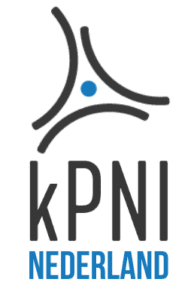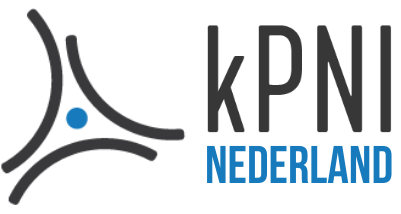Immuun-naar-hersenen en hersenen-naar-immuun communicatieroutes
Een aantal vragen staan centraal bij kPNI: Hoe ‘praat’ het immuunsysteem met de hersenen tijdens infectie en ontsteking? Hoe verandert psychologische stress dergelijke communicatie? Fundamentele onderliggende mechanismen en signaalroutes worden onderzocht in PNI-onderzoek.
Stimulatie van het immuunsysteem leidt tot de productie van immuunmediatoren van de cytokinefamilie. Deze cytokinen en immuuncellen kunnen inwerken op de hersenen en bijdragen tot een ontstekingsreactie in de hersenen en tot de inductie van een door het centrale zenuwstelsel gecontroleerde ziektereactie, waaronder koorts. Zelfs als er geen circulerende mediatoren zijn, kunnen afferente zenuwen een snelle overdracht van ontstekingsinformatie naar de hersenen uitvoeren.
Belangrijk is het feit dat de interactie tussen het immuunsysteem en de hersenen bidirectioneel is, ofwel twee kanten op gaat. Efferente signalen omvatten endogene remmende feedbackmechanismen zoals het sympathische zenuwstelsel en de hypothalamus-hypofyse-bijnier (HPA)-as. Corticotropine-releasing hormoon (CRH) wordt afgegeven door de hypothalamus en induceert de afscheiding van adrenocorticotroop hormoon (ACTH), dat op zijn beurt de afgifte van glucocorticoïden uit de bijnieren induceert. Glucocorticoïden kunnen het geactiveerde immuunsysteem dempen en terugkoppelen naar het centrale deel van de HPA-as. Op deze wijze houden het immuunsysteem en het zenuwstelsel elkaar in toom. Bij chronische activatie verliezen deze systemen hun bufferende werking.
De wetenschap laat zien dat activatie van de stress assen en chronische activatie van het immuunsysteem, de zogenoemde laaggradige ontsteking centraal staat in het ontstaan van degeneratieve neurologische aandoeningen, zoals depressie, alzheimer en parkinson
Immunopsychiatrie is gericht op het begrijpen van de rol van het immuunsysteem in de pathofysiologie van neuropsychiatrische ziekten, zoals depressie. Het PNI-perspectief van de psychiatrie heeft de rol benadrukt van cytokines en immuuncellen (inclusief microglia, immuuncellen van het CZS) bij de ontwikkeling van neuropsychiatrische symptomen en depressie. Een veranderd immuunprofiel van depressieve patiënten blijkt ook verband te houden met een verhoogde resistentie tegen antidepressiva.
Relevante wetenschappelijke publicaties:
Dantzer R. Neuroimmune Interactions: From the Brain to the Immune System and Vice Versa. Physiol Rev, 2018, 98(1):477-504. doi: 10.1152/physrev.00039.2016.
D’Mello C, Swain MG. Immune-to-Brain Communication Pathways in Inflammation-Associated Sickness and Depression. Curr Top Behav Neurosci, 2017, 31:73-94. doi: 10.1007/7854_2016_37.
Rummel C. Inflammatory transcription factors as activation markers and functional readouts in immune-to-brain communication. Brain Behav Immun, 2016, 54:1-14. doi: 10.1016/j.bbi.2015.09.003.
Wohleb ES, McKim DB, Sheridan JF, Godbout JP. Monocyte trafficking to the brain with stress and inflammation: a novel axis of immune-to-brain communication that influences mood and behavior. Front Neurosci, 2015, 8:447. doi: 10.3389/fnins.2014.00447.
Konsman JP, Parnet P, Dantzer R. Cytokine-induced sickness behaviour: mechanisms and implications. Trends Neurosci, 2002, 25(3):154-9. doi: https://doi.org/10.1016/S0166-2236(00)02088-9
Pavlov VA, Tracey KJ. Neural regulation of immunity: molecular mechanisms and clinical translation. Nat Neurosci. 2017 Feb;20(2):156-166. doi: 10.1038/nn.4477.
Pongratz G, Straub RH. The sympathetic nervous response in inflammation. Arthritis Res Ther. 2014;16(6):504. doi: 10.1186/s13075-014-0504-2.
Yirmiya R, Rimmerman N, Reshef R. Depression as a microglial disease. Trends Neurosci. 2015 Oct;38(10):637-658. doi: 10.1016/j.tins.2015.08.001.
Zunszain PA, Hepgul N, Pariante CM. Inflammation and depression. Curr Top Behav Neurosci, 2013, 14:135-51. doi: 10.1007/7854_2012_211.
Capuron L, Miller AH. Immune system to brain signaling: neuropsychopharmacological implications. Pharmacol Ther, 2011, 130(2):226-38. doi: 10.1016/j.pharmthera.2011.01.014.
Wohleb ES, Franklin T, Iwata M, Duman RS. Integrating neuroimmune systems in the neurobiology of depression. Nat Rev Neurosci, 2016, 17(8):497-511. doi: 10.1038/nrn.2016.69.
Laumet G, Edralin JD, Chiang AC, Dantzer R, Heijnen CJ, Kavelaars A. Resolution of inflammation-induced depression requires T lymphocytes and endogenous brain interleukin-10 signaling. Neuropsychopharmacology, 2018. doi: 10.1038/s41386-018-0154-1.
Kappelmann N, Lewis G, Dantzer R, Jones PB, Khandaker GM. Antidepressant activity of anti-cytokine treatment: a systematic review and meta-analysis of clinical trials of chronic inflammatory conditions. Mol Psychiatry, 2018, 23(2):335-343. doi: 10.1038/mp.2016.167.





